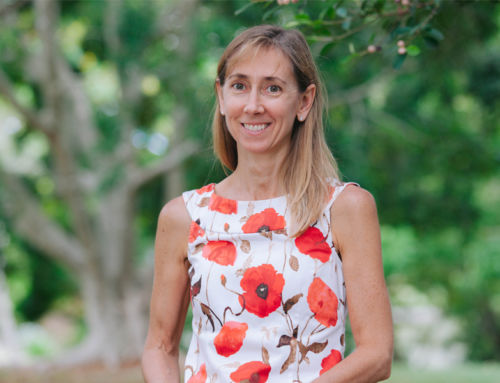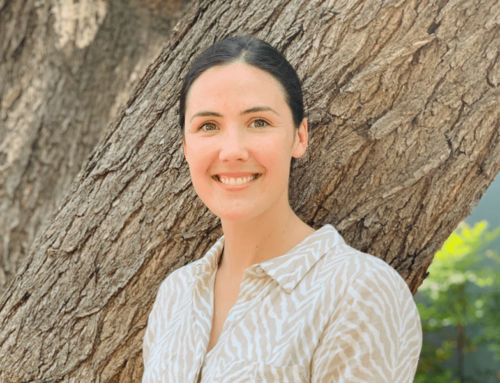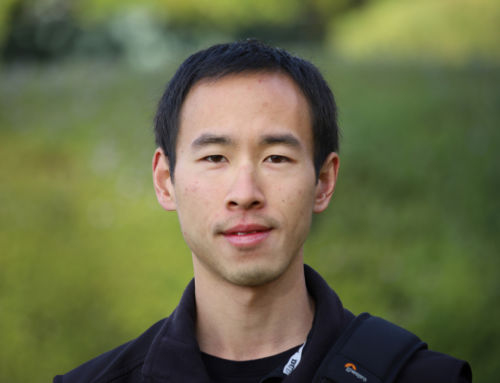University of Tasmania
Fred Gale is a University of Tasmania (UTAS) academic researcher, teacher, and campus and community educator whose passion for Sustainability commenced in 1987 at the UN World Food Program when asked for comments on an early Brundtland Report draft. Fred subsequently enrolled in a PhD to examine the issues raised, focusing on tropical deforestation. Fred has published many books, articles, and book chapters on diverse Sustainability themes especially linked to issues of sustainable consumption and sustainability governance.
Fred has also devoted himself to embedding Sustainability in the UTAS curriculum (e.g. the first sustainability-focused breadth unit, development of a Sustainability Diploma), in the physical design of UTAS campuses (leading the creation of an Edible Campus) and through community engagement. A founding member of the UTAS Education for Sustainability Community of Practice (EfS CoP), Fred is now leading on two important UTAS initiatives: Global Climate Change Week and Sustainability in the Pub.
> A closer look
Fred researches, teaches, and engages the campus and community on Sustainability politics, governance, and political economy topics through his position as a professor in the University of Tasmania (UTAS) Politics and International Relations program in the School of Social Sciences, College of Arts, Law and Education. His overarching objective is to see Sustainability progressively embedded at UTAS as it transitions to become a fully Sustainable University, while also seeking wider social change within the Tasmanian community and internationally. He is working to accomplish this not only through his research, teaching, campus design and community engagement activities, but also through constant personal reflection on Sustainability’s meanings and the cultivation of Sustainable identities.
Research
Fred is an international expert on tropical and temperate deforestation politics and multistakeholder governance for sustainable consumption. His research on certification and labelling schemes in forestry, fisheries, organics, and fair trade schemes has examined the potential of these schemes to foster sustainable consumption at the personal and institutional levels including through green procurement strategies.
On his arrival in Tasmania in 2000, Fred began to study the local ‘forest wars’, becoming increasingly alarmed at the planning processes that underlay the Gunns Bell Bay pulp mill project. In 2009 Fred assembled a team of 14 mostly UTAS academics, who each contributed a chapter to an edited book, Pulp Friction in Tasmania, to critically examine governance processes, treatment of Indigenous Tasmanians, and impacts on Tasmania’s air, sea, biodiversity and economy. Published in 2011, the book made an important contribution to ensuring the project did not proceed by validating many of the community’s concerns. Fred’s critical work on the Gunns’ pulp mill has been cited in the Tasmanian Parliament and his work on multistakeholder governance underpins several international policy reports (e.g. the International Institute for Sustainable Development’s (IISD) Voluntary Sustainability Standards and Supply Chain Governance).
In 2015 Fred won an internal UTAS grant to lead research and community engagement on Sustainable Food Systems and established an interdisciplinary group of 10 academics from across UTAS to lead research and engagement in this area. Fred led initiatives that included the development of the Sustainable Food System Major, the hosting of an international conference (Food Futures in the Anthropocene: Place-based, Just, Convivial), and the design of the Edible Campus (see Campus Engagement below).
Education for Sustainability
Fred has embedded Sustainability in the units he coordinates at UTAS (e.g. Global Political Economy provides a political economy of sustainability perspective; Introduction to International Relationships includes sustainability challenges such as climate change), while also promoting the ‘greening’ of the UTAS curriculum more broadly. As a founding member and active participant of UTAS’ Education for Sustainability Community of Practice (EfS CoP), established in 2011, Fred has led several initiatives to green the UTAS curriculum. These include co-designing and co-teaching one of the first Breadth Units (Engaging with Sustainability). Even thought Breadth Units (multi-disciplinary units available to all students) are no longer offered at UTAS, Engaging with Sustainability was integrated into both the very successful Diploma of Sustainable Living and the Bachelor of Philosophy.
Increasingly Fred promotes critical systems thinking as a pathway to Sustainability knowledge, framing two initiatives he led to introduce degrees with Sustainability themes. A proposed Diploma in Sustainability submitted in 2012, did not proceed for a variety reasons, many of which are captured in an article Fred led on impediments to embedding EfS in higher education institutions published in the Australian Journal of Environmental Education. The second, a proposed Sustainable Food Systems Major, was developed through collaboration with an interdisciplinary team of colleagues from the Natural, Agricultural, Health and Social Sciences, Humanities and Business. It has been pitched to senior management to take advantage of the new Edible Campus proposals at the Inveresk Precinct, Launceston, discussed below.
Campus Engagement
Fred has supported UTAS management in the creation of an Edible Campus approach as part of the redesign of UTAS’ new $300m Northern campus. Working across disciplinary silos in Arts, Health, Architecture and Agriculture, and with senior management and architectural consultants, Fred helped negotiate agreement to establish a unified campus garden, didactic kitchen laboratory, and restaurant facility now currently under construction. A series of edible plots will support a significant output of food production and will enable collaborative learning experiences for all ages, available for community events and festivals with flexible seating, decking and open green space. Based on Fred’s efforts, UTAS is now hiring our inaugural Community Garden Coordinator as part of the Sustainability Team.
Community Engagement
Fred is a powerful voice in the Tasmanian community promoting action on climate change and the SDGs. He is well networked into his local community, especially in relation to sustainable food systems, assisting the City of Launceston in its bid to become a UNESCO Creative City of Gastronomy. In 2013, Fred rose to the local TEDx challenge in his home town, presenting on Sustainable Consumption. Fred braved the nerve-wracking, performance-based TEDx format and his presentation now has 23,000 hits on YouTube, 333 likes (only 9 dislikes!), a reach far beyond his local community.
Fred is leading UTAS’ community engagement on climate change as Chair of the Global Climate Change Week (GCCW) Working Group of the UTAS Sustainability Committee. Launched in 2015 by the University of Wollongong, GCCW works to raise academic, student, staff and community awareness about the threat of climate change and to encourage local action to bring about needed change. Fred planned UTAS’ first engagement in 2018 and 2019 in collaboration with a small group of committed UTAS academics. In 2020 the University of Wollongong contacted Fred to see if UTAS would be willing to take it on and Fred issued an enthusiastic ‘yes’ and then worked to convince senior management this was something UTAS could and should do and invest in. Strongly supported by the Sustainability Committee, Fred assembled a team of 20-plus academics, professional staff and postgraduate students to run a large Tasmanian program and ensure an active international outreach. As a result, and despite COVID-19 handicaps, a week-long UTAS program was organised that attracted students and community members to a huge range of events that included, for example, over 320 school children in 12 schools who learned about the issues through the Curious Climate Tasmania (CCT) school edition; Island poets who participated in a mixed face-to-face and online Zoom event entitled Poets for Planet A; a physical and virtual art exhibition, CLIMATE. CHANGING. ART, that attracted over 150 participants; and an online seminar of Australian-based Climate Fiction (CliFi) writers. Internationally, over 200 universities registered, each running local campus-based programs on climate change tailored to their university and community.
GCCW also acts as a platform for major university announcements for climate action—Fred worked with GCCW Committee members and the Sustainability Committee to encourage UTAS to respond to Fossil Free UTAS and Fossil Free Tasmania’s requests that it divest from fossil fuels. The pressure paid off and UTAS’ Vice Chancellor, Professor Rufus Black, announced UTAS’ commitment to divest on the first day of the GCCW, 19 October 2020.
Finally, Fred has championed community engagement with the SDGs through a Sustainability in the Pub initiative commencing in 2018. Building on similar formats in other disciplines (History in the Pub, Philosophy in the Pub), Sustainability in the Pub events are designed around the SDGs, usually focusing on a single SDG per session. Three local experts, two from UTAS and one from the community, are invited to make short presentations on the topic, relating the SDG to what is happening locally in Tasmania. The aim is to engage speakers and audience to reflect on the direct relevance of the SDGs to their own local circumstances. To date, Sustainability in the Pub events have been held on the following SDGs: SDG2 Zero Hunger, SDG4 Quality Education, SDG 7 Affordable & Clean Energy, SDG12 Responsible Consumption and Production, SDG 13 Climate Action, SDG14 Life Below Water, in both Hobart and Launceston. These events have been very well attended, with 40 and 60 participants on average but SDG 12 on Responsible Consumption and Production attracted over 120 participants including many local politicians as it also covered the hot-button topic of plastic pollution!
> Impact and benefits
The impacts from Fred’s research, teaching, campus design and community engagement activities are evident in widely cited research, new Sustainability focused units, an Edible Campus design, and increased student and community awareness of Sustainability issues and themes.
Fred’s multidisciplinary research output in books, articles, chapters and conference papers on Sustainability themes has been widely cited by peers leading to an H-index of 22. Highly cited publications include Confronting Sustainability: Forest Certification in Developing and Transitioning Countries (2006), Global Commodity Governance: State responses to Sustainable Forestry and Fisheries Certification (2011) and The Tropical Timber Trade Regime (1998). His recent book, The Political Economy of Sustainability, has received excellent reviews and has almost 700 reads in Research Gate.
Fred’s impact on the UTAS curriculum is evident in the success of the ‘Engaging with Sustainability’ breadth unit he co-designed in 2015 with colleagues from Philosophy, Education, Geography, Health and Accounting. Originally titled ‘Confronting Sustainability’, the unit was the first-ever breadth unit taught at UTAS and continues to be taught today as part of the University’s Diploma in Sustainable Living and the Bachelor of Philosophy. Fred has also sought to mainstream Sustainability ideas by reorienting the ‘Introduction to International Relations’ unit he coordinates (200+ students) to ensure it addresses environmental themes. A key feature of this unit is the theme of the Anthropocene, which is woven through the unit; and the addition of Green Theory as a separate line of inquiry in addition to the standard focus on IR Realism, Liberalism, Constructivism, Critical Theory and Feminism.
Fred’s impact on campus design is evident in the University’s embrace of the Edible Campus concept in relation to the new campus architecture it is undertaking as it embraces the Urban campus idea. Working with colleagues in Health Sciences, Architecture and Business, Fred championed the idea of the Edible Campus with senior management, leading to a set of decisions that will see a campus garden, didactic Kitchen/Laboratory and restaurant included in the design of the Inveresk Precinct in Launceston, with construction anticipated to commence later in 2021 and supported by a new full-time Community Garden Coordinator.
Fred’s community engagement impacts are evident in his work on GCCW and Sustainability in the Pub. GCCW 2020 was a major success, COVID-19 notwithstanding, with a vibrant school and community program that involve hundreds of Tasmanians from all walks of life and reached, via Zoom, participants from around Australia and even internationally. A highlight of GCCW was UTAS’ commitment to divest from fossil fuels, made possible not only by years of pressure by Fossil Free UTAS, but also by the combined efforts of the GCCW Committee and the UTAS Sustainability Committee. The impact of Sustainability in the Pub is evident in the numbers attending and in participant feedback. One participated stated: “I really enjoyed the way the panel unpacked the word “peace” and its meaning in different contexts at the end, in the Q&A. I really enjoyed the discussion that followed when opened up to the audience. The speakers challenged my assumptions. The tone of the evening felt intimate, accessible and up close with some really interesting thinkers.” Another stated: “I have a particular interest in education, but I am not an academic. It was great to hear from both academics and professionals/ community members and the conversation with the audience at the end was very lively and inspirational.” Finally, a third reflecting on the general importance of having Sustainability validated in the community: “Just meeting other interesting people in the community who have passion for sustainability is fantastic!”.


> Leadership and engagement
As detailed above, Fred has demonstrated leadership across all the key roles he occupies in research, teaching, campus design and community engagement. As a senior academic, he has been a research leader on Sustainability, with an international reputation in Sustainability governance and the political economy of Sustainability. In teaching, he has led initiatives within UTAS’ EfS CoP seeking to embed Sustainability in the curriculum through promoting Sustainability breadth units as well as mainstreaming Sustainability ideas in introductory, undergraduate units. He has led on-campus design initiatives through his efforts to establish the Edible Campus at Inveresk in Launceston; and on community engagement through his co-leadership of the GCCW and leadership of Sustainability in the Pub initiatives.
Fred is not a conventional leader, however, and does not really like the term, which often connotes forms of top-down managerialism. Instead, Fred views himself as a facilitator of action and a mentor of people. He employs multistakeholder deliberation combined with democratic governance strategies to achieve reflexively desired outcomes. While getting things done is important to Fred, so too are the processes employed. Sustainability for him is about mutual respect across what are often intractable differences in values, beliefs, social positions and lifestyles. To get to Sustainability involves deep deliberation across competing environment, social and economic imperatives, which require reconciliation as much at the level of the individual as they do at the level of the community. Exercising leadership, then, is as much about managing ones’ own self expectations and working to make oneself just a bit more Sustainable every day as it is about brokering deals in social settings.
> Wider societal impact
Global Climate Change Week is both a local and international initiative. Each year, Fred and the GCCW committee contact universities around the world, encouraging them to take action on climate change during the third week of October. In 2020, over 200 universities signed up to run seminars, workshops, and community events and to make climate change-related announcements. The Chancellor of the London School of Economics, for example, Sir Nicholas Stern, employed the GCCW website to announce the launch of LSE’s Sustainability Strategic Plan; and Richard Wilkes at the University of Indiana in the US registered a Zoom event announcing the initial results of an investigative report on The Carbon Footprint of Billionaires. As noted above, the Vice Chancellor of the University of Tasmania, Professor Rufus Black, announced that UTAS would be divesting from fossil fuels, setting out a timeline for effecting this change. GCCW is thus having wide societal impact and it is hoped that 2021 will see this extended even further with a surge of events to put pressure for substantial action at COP 26 in November 2021 in Glasgow, Scotland.







